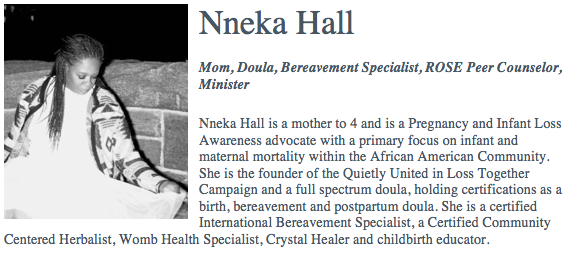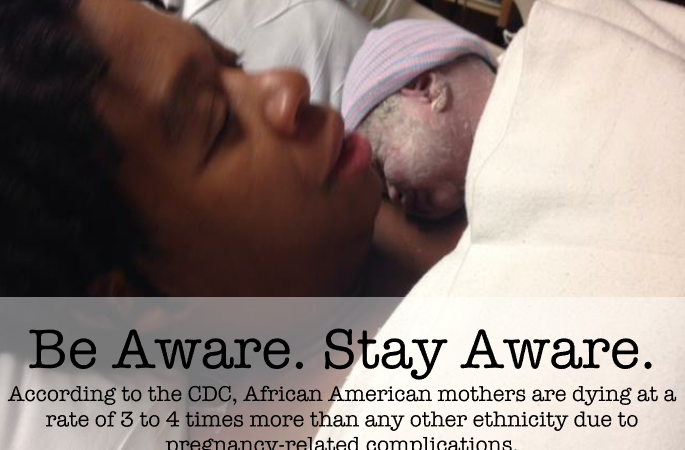WARNING: Maternal and Infant loss is mentioned in this blog post.
In the days following the death of Erica Garner, I’ve seen several posts, articles, and blogs written by people from all ethnic backgrounds. Each one speculates as to the root and getting to the root cause of the African American Maternal Mortality problem. Over the past few years, I’ve seen this type of response to this and other maternal/fetal atrocities fizzle and burn out rapidly. This is my response.
I’ve been aware of the African American Maternal and Infant Mortality disparities since the death of my daughter, Annaya Marie, in 2010. My eye-opening moments alerted me to yet another plight African American women face. The more I learned, the more I shared.
According to the CDC, African American mothers are dying at a rate of 3 to 4 times more than any other ethnicity due to pregnancy-related complications. WOW…That’s A LOT!!!
With headlines popping up all over the place, CNN’s “Childbirth is Killing Black Women in the US and Here’s Why”, Ebony’s “Black Maternal Health Matters”, NPR’s “Black Mothers Keep Dying After Giving Birth. Shalon Irving’s Story Explains Why” and countless others, I really can not understand why everyone is not aware. Google “Black Maternal Mortality” and an infinite sea of stories pop up leading up to the day Erica Garner was hospitalized and taken off of life support.
So, why is this happening?
We’ve already established that systematic racism, medical malpractice, and other societal norms are at fault. So the “whys” are no longer important. The question should be “What can I, as an individual or birth worker do to contribute to a change?” I’m convinced that if we work together as one unit for one year, we will see a great change. This epidemic is entirely too vast for one person to solve. I’ve seen great improvements in the communities that Mama Jennie Joseph in Orlando, FL, Chanel Portia/Ancient Song Doula Service in Brooklyn, NY, Mama Kathryn Hall-Trujillo/Birthing Project USA, Mama Claudia Booker/Birthing Hands in Washington DC, Mama Hakima Tafunzi Payne/Uzazi Village in Kansas City, Missouri and countless others doing this important work across the country. We must put our differences, pride, and fear aside and work as one unit, to effectively stop the genocide that is occurring in the country.
Now that you’re aware…
Stay aware. Don’t hide your head in the sand until someone else solves the problem or it falls out of the media’s site until the next time (and we all know there will be a next time).
Join the listserve of a group that will keep you aware. http://blackmamasmatter.org/, https://midwivesofcolor.wordpress.com/, and http://sistersong.net/reproductive-justice/ just to name a few.
Volunteer with any of the visionaries I mentioned above or in your community.
Do something to support a woman who is less than a year postpartum. Make an extra plate of your dinner and drop it off. Stop off to hold or watch her baby while mom takes a nap. Offer to drive a new mom in to see her OB or Midwife if she is complaining of pain or discomfort. Do a load of laundry for a new mom. Listen to a new mom.
Rest in Power, Peace, and Paradise Erica Garner and all of the other mothers who have died due to pregnancy-related complications.
I am aware and will stay aware.
For more information regarding the current infant mortality rate, please visit the U.S. Department of Health and Human Services Office of Minority Health’s website.

